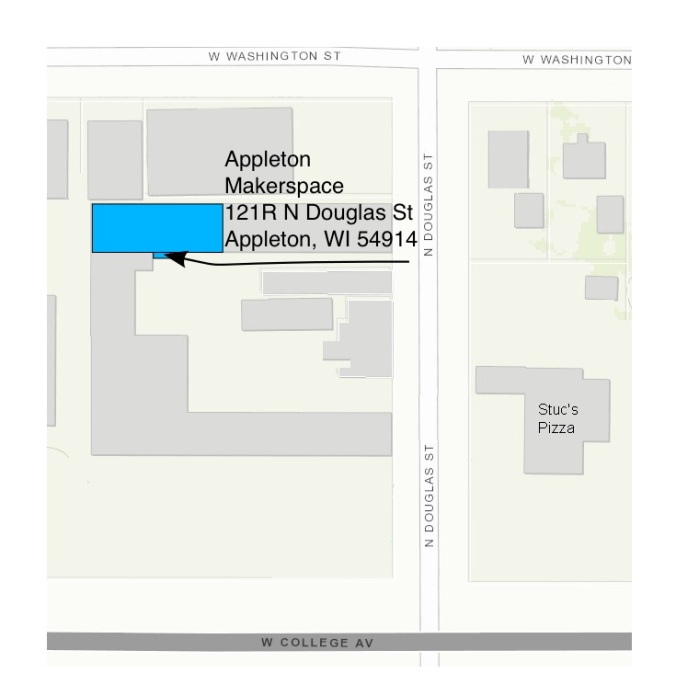Future Posts For PDH Will Be On DHMN Civic Hacks Blog, Not On Events Wrangling
tl;dr — Three of us met and discussed the Personal Digital Home project for 3 hours on July 30. We decided:
- namecheap will be the initially-recommended domain registrar
- we’ll use the NE Wisconsin Slack channel #dhmncivichacks for most PDH communications (sign up here for the NE Wisconsin Slack team if you’re not a member yet)
- I’ll publish future PDH blog posts on the DHMN Civic Hacks blog, not on Events Wrangling
- Mike is going to think about syndicatable data elements he could build for PDH (similar in concept to Gravatar’s functionality.
- Chris is going to learn more about IPFS and figure out if it would be useful fo PDH
- I’ll create a GitHub repository for PDH under the DHMN civic hacks repository
- I’ll schedule the next PDH meetup for a Coder Cooperative session on Aug 15, 22 or 29
[If you’re not familiar with the Personal Digital Home project, it is “the starting point for your digital life.“ The PDH concept is essentially One Site To Rule Them All, your data storage shed, control panel and cyberspace digital presence. A PDH website is intended to let you Own Your Data, give you more control your presence in the metaverse, and make you more effective at interacting with all things digital. Two other projects closely related to PDH are IndieWeb and The Decentralized Web initiative.]
July 30 Meetup Summary
Three NE Wisconsin TIME community members met on July 30, 2016, from 1 – 4 PM CDT at Tom’s Drive In on Westhill Boulevard in Appleton, Wisconsin, USA, to discuss and work on the Personal Digital Home (PDH) project. This post is an overview of the July 30 meeting.
I had proposed an agenda for this meetup, but we pretty much ignored it. This was Chris’ first exposure to PDH, so Mike kicked off the meeting by explaining to Chris what Mike’s understanding and vision of the project is. Unfortunately, I can’t repeat here what Mike said, so for now only Chris and I got the benefit of how Mike sees PDH.
[At the next PDH meetup, I’m going to record Mike (and others if they’re ok with that) when they paint a picture of what PDH means to them. Then I’ll put that in cyber-writing, and we can refine the descriptions. That will help us see what the commonalities are between people working on the project and how each one aligns with the big picture I’m working to solidify for PDH.]
To me, Mike’s description of PDH sounded pretty close to the IndieWeb project, with a strong emphasis on OYD (Own Your Data) and POSSE (Publish (on your) Own Site, Syndicate Elsewhere). So I expanded on what Mike said and explained that PDH is intended to help people better manage all their digital “stuff” online and offline now and twenty years from now when people’s lives will be even more digital than they are now. That means it will include things like:
- Your own website (using a URL or domain name you registered for yourself ).
- The POSSE content you create, e.g. for Twitter, Facebook, other social media, blog posts, Google Docs, photos, etc.
- A reliable, secure, and private backup system for all the digital data you don’t want to lose.
- A portfolio or repository for all your education, learning, knowledge, and expertise.
- An umbrella site for all your ventures, side gigs and residual income streams.
- Whatever other digital components your life has (or pointers to those components if they are under your control elsewhere).
Think about your digital and online life ten or twenty years ago. Then think about how much more digital, cellular and internet-connected you are today.
NOW — extrapolate forward twenty years. The concept of PDH is to be the digital interface you’ll want to have twenty years from now, when even more of your life is locally-networked and internet-connected via cellular, WiFi, and other wireless or wired protocols, blending reality, augmented reality, virtual reality, holography, wearable computing, robotics, and other digital-life tools that haven’t been imagined yet.
After Mike and I told Chris how we see PDH, he asked a few questions, then we started talking about different components of PDH and how the overall concept might function. That was sort of Talking Point 1 on my agenda, or at least part of it. Mike and Chris didn’t have an interest in talking about or working on secure and reliable backup systems for people’s current digital data and lives, so I’ll have to connect with someone else if PDH is going to create a reliable, secure and private backup system people can build in upcoming months.
Toward the end of the meeting, we talked a bit about Next Steps for PDH. All in all, it was an excellent meeting, and I feel we made good progress. I’m looking forward to working on PDH over the next few weeks and meeting up again in person in a few weeks.
PDH Communications
We agreed that, for now, most of our communications will happen via the NE Wisconsin Slack team in the #dhmncivichacks channel.
I’ve been publishing posts about the PDH project on the Events Wrangling blog, but will move those to the DHMN Civic Hacks blog since we’re putting it under the DHMN (Distributed Hacker/Maker Network) umbrella, at least as a starting point. I’ll leave a pointer on the Events Wrangling blog telling people interested in PDH to look at DHMN Civic Hacks.
For communicating and collaborating regarding software, firmware, hardware, services, and project design, we’ll use GitHub as a central point for now. I’ll probably do some work on a GitHub wiki. The IndieWeb project appears to use a MediaWiki wiki as their central organizing hub, with two freenode irc channels for their discussions (you can also connect via Slack).
We also agreed that the success of PDH is dependent on it being a hybrid project — some online interaction and some in-person, some asynchronous communication and some synchronous. The majority of the work will be done in a distributed fashion with online collaboration and communication. The distributed functionality will enable the project to build a global team if we can develop a good project base and effectively communicate compelling reasons to participate in the project.
But we’ll also have periodic in-person meetups, especially for recruiting new members to the project, for working together on hardware and other physical aspects of PDH, and for FUN and general relationship building. Plus maybe some Stuc’s pizza and Great White or Moon Man beer…
Security And Privacy
Security and privacy are critical to PDH being a viable concept and a usable digital tool. A couple NE Wisconsin infosec people expressed interest in the project, and I hope to have them at one or more of our upcoming meetings. My approach to PDH is that it will only be reliably secure and private if we have security people involved right at the beginning. It makes no sense at all to build PDH with only casual and incomplete or incorrect security measures, then expect to bolt on true security as an intermediate or last step. Won’t work.
We also discussed how security and convenience are, to a certain extent, on opposite ends of a spectrum. What I’d like to discuss with the security specialists is the concept of designing for the most secure system possible at three different levels of convenience.
- Convenience Level 1 — very convenient; preferred by 90%+ of the people who are online.
- Convenience Level 2 — medium convenience, preferred by tech people who want a middling amount of convenience with as much security as possible at that convenience level; 3 – 9% of people who are online.
- Convenience Level 3 — only use Tor or similarly-secure browser, use auto-obfuscation tools, encrypt all email and other communications if available, etc; 0.01 – 1.0% of people who are online.
Gravatar / IIRW / Pluggable Software Components
Mike’s goal is to figure out and build some type of elemental software chunk that performs along the lines of Gravatar, which is, I think, a POSSE widget. I’m not a coder, so I’m sure I’m mangling terminology. Mike can unmangle this paragraph to explain what his first PDH goal is. Or even better, he can write a separate post for DHMN Civic Hacks or a description for GitHub to describe what he’d like to initially work on for PDH.
We talked about creating modular pluggable software components for PDH, maybe along the lines of plugins for WordPress or extensions for the Chrome browser.
In addition to the Gravatar analogy, Mike used the example of the “Is it recycling week?” (IIRW) Android app civic hack he spearheaded. He started out by writing the AppletonAPI, based on some things he learned from a Madison civic hacker. Then he wrote the IIRW app. Along the way, another Mike got plugged into the civic API and recycling civic hack, and he developed a civic API discovery service with standard contracts, then he wrote a Greenville API. Chris and Ross also jumped in building a web interface for the recycling information, an Outagamie county API and a Pebble Watch app.
So Mike wants to figure out a small but useful component or building block of PDH that he and others can improve, build off of, and work toward the big picture of a fully functional PDH.
IPFS
Chris is starting on PDH by figuring out whether IPFS can be a useful component or building block for the project. IPFS is the acronym for InterPlanetary File System. (TechCrunch article about it for background)
As with Mike and the Gravatar / IIRW starting goal, I’ll let Chris write a paragraph to explain how or why he wants to build IPFS into the PDH. Or he can write a post instead of a paragraph! 🙂
Raspberry Pi 3 Hdwe Stack / AWS Virtual Stack
Raspberry Pi 3 was discussed as a possible hardware first demonstration platform for PDH.
I see the PDH development process as a dual-focus iterative process.
One focus is the design of the system. We don’t know exactly what PDH should look like yet, because we’re just starting to figure out what we want it to do. So part of the time we’ll be thinking about, researching and discussing what PDH should do, and what components will enable it to do those things. We’ll keep working on the design until we get to a v.0.1 design. Then we’ll iterate on that design and come up with the next incremental version.
Meanwhile, the other focus of the PDH project is building the modular pluggable components we think we want to use. Some of those components will be hardware, some will be software, some might be firmware or services. But we will be building things, not just discussing and designing them. What we learn from building and using those components will inform the next iteration of design, which will then inform the next iteration of build.
Based on what we discussed on July 30, Mike and Chris think a Raspberry Pi 3 might be an interesting starting point for PDH hardware. The three of us will research and think about that more and if, after the next PDH meetup, it still looks like the Pi 3 is a good hardware starting point, I’ll get a Pi 3 and start on the hardware build cycle.
Mike and Chris also mentioned the possibility of a minimal hardware instance of PDH which would likely use AWS, so one of them may start defining and developing that in parallel with the Pi 3 or other hardware-focused solution.
Other General Discussion
Since I didn’t record the meeting or take extensive notes, I’ll just include bullet points for the rest of the discussion we had on July 30. Mike or Chris can expand on these if they want, and I’ll update the post with their verbiage. Or the bullet points below can just stand as reminders to the three of us, as well as potential starting points for questions from others who are interested in PDH.
- Blockchain; contracts for all components — Mike P can explain to Mike R his view on those being part of PDH
- Make Something People Want
- Mike’s example of group of students who are friends coming up with new uses for Minecraft and Pi
- Josh G can help by giving input re what students he works with might want
- Pluggable components for both software and hardware
- Consumer WiFi router ⇒ consumer server
- Chromebook update and near-zero maintenance model ⇒ consumer server
- Minimum personally-owned hardware is encryption key (Mike)
- Chrome profile (Mike)
- ownCloud (Chris)
- Sandstorm (Bob)
- Folding At Home (Mike)
- HTML local storage (Mike)
- GitHub / Git (Mike)
Next PDH Meetup
The next PDH in-person meetup will be a Monday night — either August 15, 22, or 29. I will contact a few people this week to see which of those three work best, then I’ll publish a post and make a whole bunch of people aware of the date for the next meetup. PDH will be the main topic for Coder Cooperative (CC) on the Monday we select. CC runs from 7-9 PM at the Appleton Makerspace, but I’ll be there at 6 PM if a Makerspace member will have the door open by 6 — I’ll highlight in the pre-meetup post whether to come at 6 if you want to talk about PDH before the 7 PM official start time.
Ten people were interested in PDH and the July 30 meetup, but due to typical busy summer weekend schedules only three could make it. So I’m looking forward to having somewhere between five and fifteen people talking about and working on PDH in a couple weeks! 🙂
Future Posts For PDH Will Be On DHMN Civic Hacks Blog, Not On Events Wrangling
——————–
[contact Bob Waldron at bwaldron (at) gmail {dott} com if you have questions about PDH]
*****
 The second meetup to work on the Personal Digital Home (PDH) project is tomorrow, Saturday, July 30, 2016, at
The second meetup to work on the Personal Digital Home (PDH) project is tomorrow, Saturday, July 30, 2016, at 

 The
The 
 The second PDH meetup will be a three hour discussion-work session on July 24, 30, or 31, depending on which day works best for others. During the next couple days I’m going to contact a bunch of people who might be interested in getting involved with PDH to see which of the three days are open for them. If you’re interested in participating in the second meetup, contact me at bwaldron (at) gmail [dott] com.
The second PDH meetup will be a three hour discussion-work session on July 24, 30, or 31, depending on which day works best for others. During the next couple days I’m going to contact a bunch of people who might be interested in getting involved with PDH to see which of the three days are open for them. If you’re interested in participating in the second meetup, contact me at bwaldron (at) gmail [dott] com. A
A 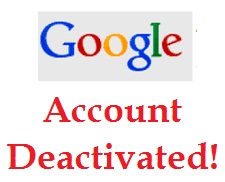 most of his personal data and files from more than a decade of his life because Google deactivated his account. This article reaffirmed my commitment to developing the Personal Digital Home. According to the Fusion.net article:
most of his personal data and files from more than a decade of his life because Google deactivated his account. This article reaffirmed my commitment to developing the Personal Digital Home. According to the Fusion.net article:
 affect you.
affect you. Fusion.net’s article points out this isn’t just Cooper’s problem. It’s not just the problem of the miniscule 0.0001% of Google’s users who have had their accounts deactivated. And it’s not just Google. Facebook and other tech companies work the same way. It is simply unwise and foolish to blindly expect Google or other companies on the web to store your data and rely 100% on them to make your data available to you for the next 100 years — or even for later today or tomorrow.
Fusion.net’s article points out this isn’t just Cooper’s problem. It’s not just the problem of the miniscule 0.0001% of Google’s users who have had their accounts deactivated. And it’s not just Google. Facebook and other tech companies work the same way. It is simply unwise and foolish to blindly expect Google or other companies on the web to store your data and rely 100% on them to make your data available to you for the next 100 years — or even for later today or tomorrow. If you want your data to always be safe and available, you need a reliable data backup system.
If you want your data to always be safe and available, you need a reliable data backup system.
 For starters on your data backup work, if you use Google services, like Gmail or Blogger, go to
For starters on your data backup work, if you use Google services, like Gmail or Blogger, go to  Argh… I ended up spending a couple hours reading about projects related to the D-Web and thinking about how they relate to the PDH. And that couple hours of reading is just barely scratching the surface. It feels like I’m just beginning to get a picture of how many technologies and people are involved in the D-Web effort. Sort of makes the PDH project feel overwhelming, or Sisyphean…
Argh… I ended up spending a couple hours reading about projects related to the D-Web and thinking about how they relate to the PDH. And that couple hours of reading is just barely scratching the surface. It feels like I’m just beginning to get a picture of how many technologies and people are involved in the D-Web effort. Sort of makes the PDH project feel overwhelming, or Sisyphean… Distributed Web (that name changed over the next few months to the Decentralized Web).
Distributed Web (that name changed over the next few months to the Decentralized Web). “
“



 So a web service could be created for automated and collaborative development of events — let’s call it EventsOrganizer.blog. Anyone who wants to go to an event centered around a topic they’re passionate about could go to EventsOrganizer.blog and find out what events are coming up. If they’re interested in electric aircraft and want to participate in an electric aircraft one-day event in the Midwest USA within the next eight months, they can see if something like that is scheduled.
So a web service could be created for automated and collaborative development of events — let’s call it EventsOrganizer.blog. Anyone who wants to go to an event centered around a topic they’re passionate about could go to EventsOrganizer.blog and find out what events are coming up. If they’re interested in electric aircraft and want to participate in an electric aircraft one-day event in the Midwest USA within the next eight months, they can see if something like that is scheduled.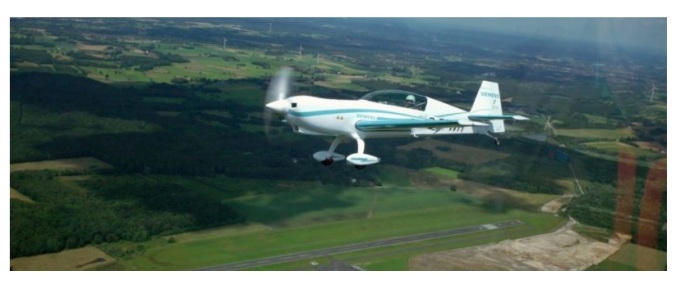
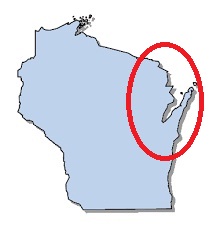
 The topic of high interest to me today (and on many other days) is the future of the internet. The internet is still in its early years and will continue to change as technological innovations happen, as more of the world becomes connected through the internet, and as governments and corporations develop new policies affecting the internet.
The topic of high interest to me today (and on many other days) is the future of the internet. The internet is still in its early years and will continue to change as technological innovations happen, as more of the world becomes connected through the internet, and as governments and corporations develop new policies affecting the internet. To the extent possible, people involved with the PDH project need to be aware of upcoming internet-changing events which are likely to influence PDHs. This includes events like the
To the extent possible, people involved with the PDH project need to be aware of upcoming internet-changing events which are likely to influence PDHs. This includes events like the  This is an event day-after report for yesterday’s
This is an event day-after report for yesterday’s  Infosec needs to be the foundation of PDH and IndieWeb-for-consumers, build other stuff on top of it.
Infosec needs to be the foundation of PDH and IndieWeb-for-consumers, build other stuff on top of it.
 For PDH sites, can other webdev tools than just WordPress be used?
For PDH sites, can other webdev tools than just WordPress be used?
 [Good feeling about
[Good feeling about  Short description
Short description In an effort to “catch up” in my
In an effort to “catch up” in my  Do you want the government, Facebook, Apple, Google, or some tech company not yet formed deciding the best way to manage your digital life, or determining the rules for how you (and they) access and use your data and files because they store or control your data? Right now they can sell your digital stuff, they can delete it, and they can seriously impact your daily lives by what they do with your pictures, words, files, records, songs, digital books, etc.
Do you want the government, Facebook, Apple, Google, or some tech company not yet formed deciding the best way to manage your digital life, or determining the rules for how you (and they) access and use your data and files because they store or control your data? Right now they can sell your digital stuff, they can delete it, and they can seriously impact your daily lives by what they do with your pictures, words, files, records, songs, digital books, etc.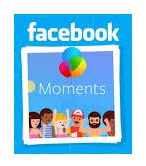 A real life example from just last week of how this situation impacts people was the June 11, 2016 headline, “
A real life example from just last week of how this situation impacts people was the June 11, 2016 headline, “ We are inviting many developers, designers, website builders, and general internet citizens to this Coder Cooperative meeting, trying to get meetup participants with a wide spectrum of experiences and viewpoints. The meeting is open to the public, so please come on June 20 and bring a friend!
We are inviting many developers, designers, website builders, and general internet citizens to this Coder Cooperative meeting, trying to get meetup participants with a wide spectrum of experiences and viewpoints. The meeting is open to the public, so please come on June 20 and bring a friend!